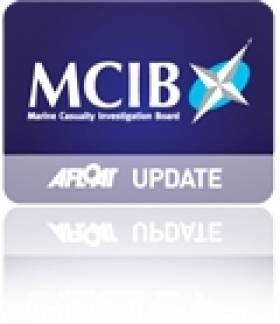Displaying items by tag: Flying Horse
MCIB Report On 'Flying Horse' Highlights Safety Issues
#MCIB - 'Safety first' is the message from marine investigators in their report into an incident on board a sightseeing vessel off the Skellig Islands two years ago.
The Flying Horse, a 33-foot passenger boat crewed by a single skipper, was carrying 14 passengers towards Skellig Michael on the morning of 29 June 2012 when it began taking on water after coming off a large wave.
The skipper then turned the boat around and attempted to contact the owner by mobile phone, without making any use of the vessel's VHF radio.
The passengers also have difficulty accessing the boat's lifejackets from their storage compartments, and there were not enough for all on board.
All were landed safety ashore at Ballinskelligs, Co Kerry, though they were "somewhat traumatised" by the experience.
The official report into the incident my the Marine Casualty Investigation Board (MCIB) identified a number of safety issues with the Flying Horse, not least a lack of proper instruction for donning lifejackets.
MCIB investigators identified the boat's speed before the incident to be around 18 knots, too fast for the rough seas at the time, which contributed to the hull damage that saw the boat take on water.
Moreover, no official records could be found to show that the skipper held the necessary qualifications to be the master of boat in question. or that he was in possession of a Radio Operator’s Certificate - a requirement for all passenger vessels.
The boat was also found to be technically overloaded, carrying two more passengers than allowed by its licence - not to mention "insufficient" crew for her safe operation.
The full report is available to download below.
























































